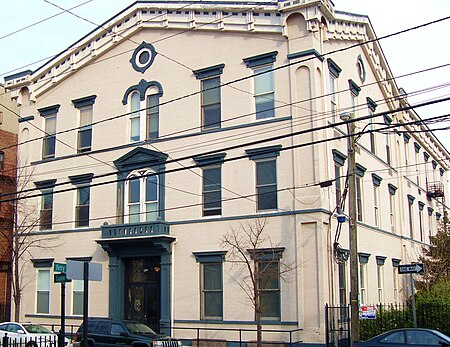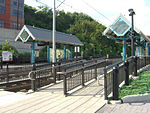Pohlmann's Hall
1874 establishments in New JerseyApartment buildings in Jersey City, New JerseyBuildings and structures in Jersey City, New JerseyCommercial buildings completed in 1874Commercial buildings on the National Register of Historic Places in New Jersey ... and 5 more
German-American culture in New JerseyNational Register of Historic Places in Hudson County, New JerseyNew Jersey Register of Historic PlacesNew Jersey Registered Historic Place stubsUnited States history stubs

Pohlmann's Hall is a building located in Jersey City, Hudson County, New Jersey, United States. The building was added to the National Register of Historic Places on September 5, 1985.
Excerpt from the Wikipedia article Pohlmann's Hall (License: CC BY-SA 3.0, Authors, Images).Pohlmann's Hall
Ogden Avenue, Jersey City
Geographical coordinates (GPS) Address External links Nearby Places Show on map
Geographical coordinates (GPS)
| Latitude | Longitude |
|---|---|
| N 40.739722222222 ° | E -74.045833333333 ° |
Address
Pohlmann's Hall
Ogden Avenue 154
07307 Jersey City
New Jersey, United States
Open on Google Maps










